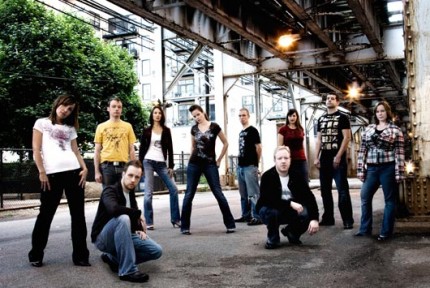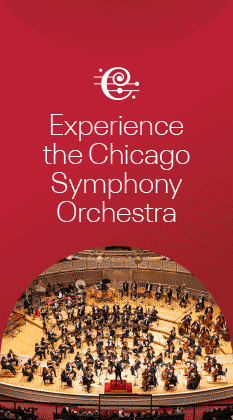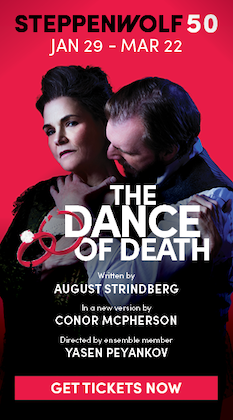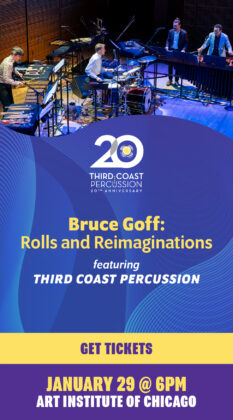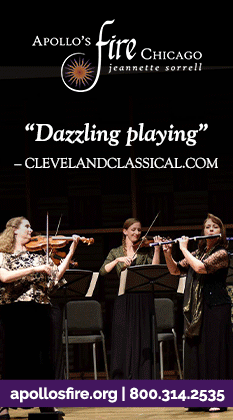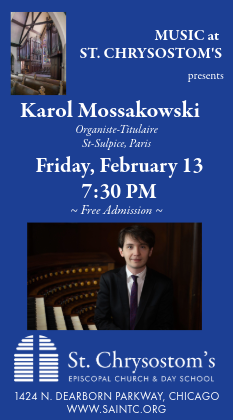Fifth House Ensemble bracingly mixes music with the Arab Spring at Cultural Center
Fifth House Ensemble, one of Chicago’s most imaginative chamber music groups, is on to something in its season-long series of concerts titled In Transit that blend live performance with social media. Watching the young group refine their ideas about how to build concerts around visual projections of tweets, e-mail, photo sharing, video and the rest of the Internet’s seemingly endless interactive arsenal has been fascinating.
On Thursday the group performed #iwitness, the final installment in the four-part In Transit series, in the Chicago Cultural Center’s Preston Bradley Hall. The focus was the Arab Spring uprisings, specifically tweets, drawings, video and bits of news broadcasts about the protests in Egypt that led to the resignation of President Hosni Mubarak in January-February 2011.
Images and tweets from the protestors, some of them unfurling as if they were being written in real time, were projected on two large screens flanking the musicians. As the typed messages, cartoon drawings and news clips came and went, small groups of Fifth house players in assorted chamber configurations performed music ranging from a Schumann piano quartet and a quintet by Villa Lobos to pieces by contemporary composers David Ludwig and Ellen Taaffe Zwilich and an arrangement by John Dorhauer of Widow by the Texas-based rock group Mars Volta.
Compared with #undercoverhero, the tale of a little boy dealing with a bully that opened the In Transit series last fall, the visuals in #iwitness were more tightly focused. I don’t know exactly how our brains work when we’re listening to live performance while watching a changing set of words and images. But the average computer screen is filled with visual junk—toolbars, ads, visible margins, constantly moving lines of type. Given all the visual clutter, it was not easy to follow the story line in #undercoverhero as it unfolded in e-mail exchanges and cartoon images while Fifth House played a dramatic score that added its own narrative.
That problem of visual overload has been solved in #witness. Individual tweets filled the screens, their type large and easy to read, their few visual elements a welcome rest for the eye rather than a distraction. They scrolled slowly allowing us plenty of time to take them in. We got to know the personalities behind the tweets, specifically a young artist, Farid Brush. His cartoon drawings of the clashes, with their thick, fluid lines and images of young men and women with soft, full faces and black hair, were full of youthful innocence and powerful emotion.
As always with Fifth House, the music was beautifully played, and Preston Bradley Hall’s rich acoustics added to our sense of being immersed in an ever-changing set of instrumental voices. Jumping from the elegiac nobility of the opening movement of Schumann’s Piano Quartet in E-flat Major to the fierce, dizzying speed of Part 1 of Ludwig’s The Catherine Wheel, Fifth House musicians added a strong expressive layer to the words and images. The mix of composers and musical styles was deftly shaped.
The final element of the In Transit evenings–asking for tweets from the audience about what they had just seen and posting them during the final musical selection—still seems awkward. Even with Fifth House’s delight in breaking boundaries, ingrained habits of audience decorum die hard. But some listeners did respond, no doubt energized by the exuberant, urgent rush of the final movement of the Schumann quartet. Revolution of all kinds, perhaps, start one tweet at a time.
Posted in Uncategorized
